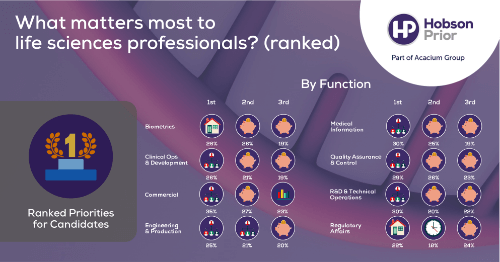Is it ok to ask candidates their expected salary?



Discussions regarding salary have traditionally been considered an awkward part of any interview process, for both candidates and employers. It is often referred to as the elephant in the room and there is a tangible change in atmosphere when salary is brought up.
The internet is filled with opposing articles arguing “Why you should never discuss salary at interview” and “How best to negotiate salary in an interview”, and even “Is it ok to ask candidates about salary?”.
Both interviewers and interviewees can recognise the uncomfortable tango in the build-up to asking questions about salary expectations. Undoubtedly one of the core influencers in the final hiring decision for both parties, why are conversations about salary and contract rates so complicated?
Is salary important to candidates?
A recent survey by YouGov in the United Kingdom suggested that “Salary is not regarded as a top priority for the workforce of the future”. They found that “over 50% of employees believe job security and flexibility are more important than salary (32%)”, suggesting that candidates are more likely to prioritise work/life balance and career stability than a high salary.
This theory supports the increased demand for remote working and flexibility that talent acquisition and HR teams have seen within the life sciences industry. However, does the rise in work/life balance and other benefits negate the importance of salary?
We at Hobson Prior specialise in global life sciences recruitment and recently surveyed candidates from across the industry on the core priorities when looking at new job opportunities. (See Survey results here)
When asked to list only their number one priority, career progression, working from home and ability to work on an exciting project were all highly ranked, often above salary. However, when asked to rank all these factors in priority order, salary was much more prevalent.
Whilst very rarely ranked as the number one priority, salary was overwhelmingly common as the second and third most popular factors in a new job opportunity. It would be naïve to assume that salary is not a core factor for candidates, but it highlights some interesting questions regarding why salary was not voted as first choice. Are other factors generally more important? Did those surveyed rank salary lower to avoid seeming greedy? Whatever the reasoning, these results mirror that uncomfortable feeling many candidates and interviewers feel when the questions around salary come up in the hiring process.
Why is salary avoided?
There are numerous reasons that candidates do not like to disclose salary expectations, even though salary is a highly regarded factor in securing a new job.
- Revealing their hand – Every candidate knows the hiring process involves a negotiation phase and some can feel that by stating their expectations, then they will potentially limit their worth.
- Unsure on market-rate – Some candidates may have an idea in their head of what they expect, but the phrasing or timing of a question may catch them off guard, making them feel uncomfortable to pull a number out without thinking about it.
- Reluctance to share salary history – Salary history is not the same as expected salary and, whilst it may help talent acquisition to better understand the candidate’s motivations, it is not needed to offer them a salary based on their experience for a new role and many feel it may be used against them in negotiations.
- And many other reasons
Regardless of the reason that a candidate may feel uncomfortable in sharing their salary requirements upfront or within the interview process, it usually boils down to the concern that the numbers they chose will either make them seem greedy, uneducated to the market standard or undersell themselves, which may derail the interview process.
Why are salary expectations important?
Countless interview processes have become derailed during salary negotiations when it becomes apparent that an employer’s budget cannot accommodate a candidate’s desired salary. These are particularly frustrating as long delays on both parties’ sides could have been avoided if expectations were established early on.
Sharing these salary and contract rate expectations has a benefit on all parties involved in the hiring process:
For a candidate: They can inform employers and recruiters on what remuneration they would consider and save disappointment and time on opportunities that do not match them.
For a hiring/talent acquisition team: Highlighting your budget to a recruiter avoids disappointment with candidates that expect much more. Similarly, by engaging early on with a candidate about the likely offer, you can limit lengthy processes that may result in delays or disappointment if this does not match the candidate’s expectations.
For a recruiter: A recruiter’s job is to connect job seekers with roles that match their needs and wants. Whether they are actively looking or being head-hunted for the role, it is in the candidate’s best interests to be open about what salary they will accept – this way they can empower their recruiter with the ability to find them the best roles, suited to their individual requirements.
How can we improve salary conversations?
There is a conflict between the realities that salary is a fundamental consideration for a new role and both hiring teams and candidates have expectations and limitations on what they can offer/accept, and the seemingly unavoidable tensions in discussing and negotiating these expectations.
Whilst discussions on salary will likely always be a contentious issue in the recruitment industry, there are some things that talented acquisition managers and human resources teams responsible for hiring can do to simplify this process:
- Focus on expectations, not salary history – Many candidates are looking for a new job because of their current salary. Asking about salary history can create mistrust as it is not considered relevant to their value and suitability for the role on offer.
- Know the market rate – To be able to provide estimated and expected salaries, it is key you are up to date with the industry standard. We have created salary benchmarking reports for areas of life sciences recruitment to help our clients to budget effectively to attract top talent.
Looking for life sciences salary benchmarking? View our reports here. - Don’t pressure the candidate for an immediate answer – You may expect strong candidates to already know their value, but interviews are stressful scenarios. Allowing the candidate time to think and respond to their expectations after the interview reduces the chance of getting an inaccurate value said in panic and opens a useful dialogue that helps better understand if you can budget for them.
- Use a recruiter – A recruitment consultant can be a useful bridge between candidates and hiring teams. Good recruiters have a rapport with their candidates and can ensure that hiring teams are introduced to candidates where the expectations meet the budget. Similarly, a good recruiter will not inflate salaries, but consult with you from the outset to advise on whether a role is on par with the market rate, using evidence from salary benchmarking based on market trends.
- Be upfront and transparent about options – Honesty is the best policy when promoting new opportunities to potential candidates. Be clear and open about the salary bands you are restricted to. Engage the candidates and emphasise your willingness to have a frank, open discussion about rates and potential.
Ultimately, in response to the question “Is it acceptable to ask candidates about their expected salary”, from a recruitment viewpoint, the answer is yes and how you navigate this question can be very advantageous in securing a successful recruitment process.
If you are looking for guidance in assessing salary benchmarking within the life sciences, our Hobson Prior recruiters create a bespoke benchmarking report for our clients. Please do not hesitate to contact our client services team for more information.









+(395+x+285+px).png)

+(395+x+285+px)+(1).png)
.png)



.png)



